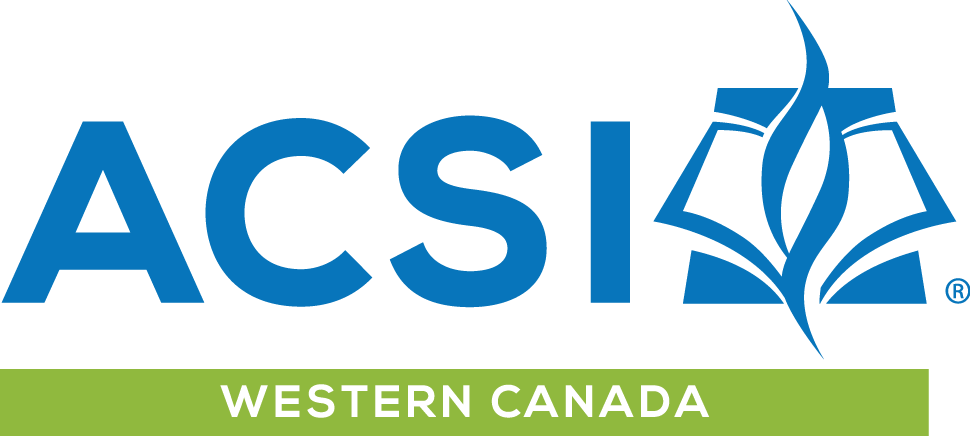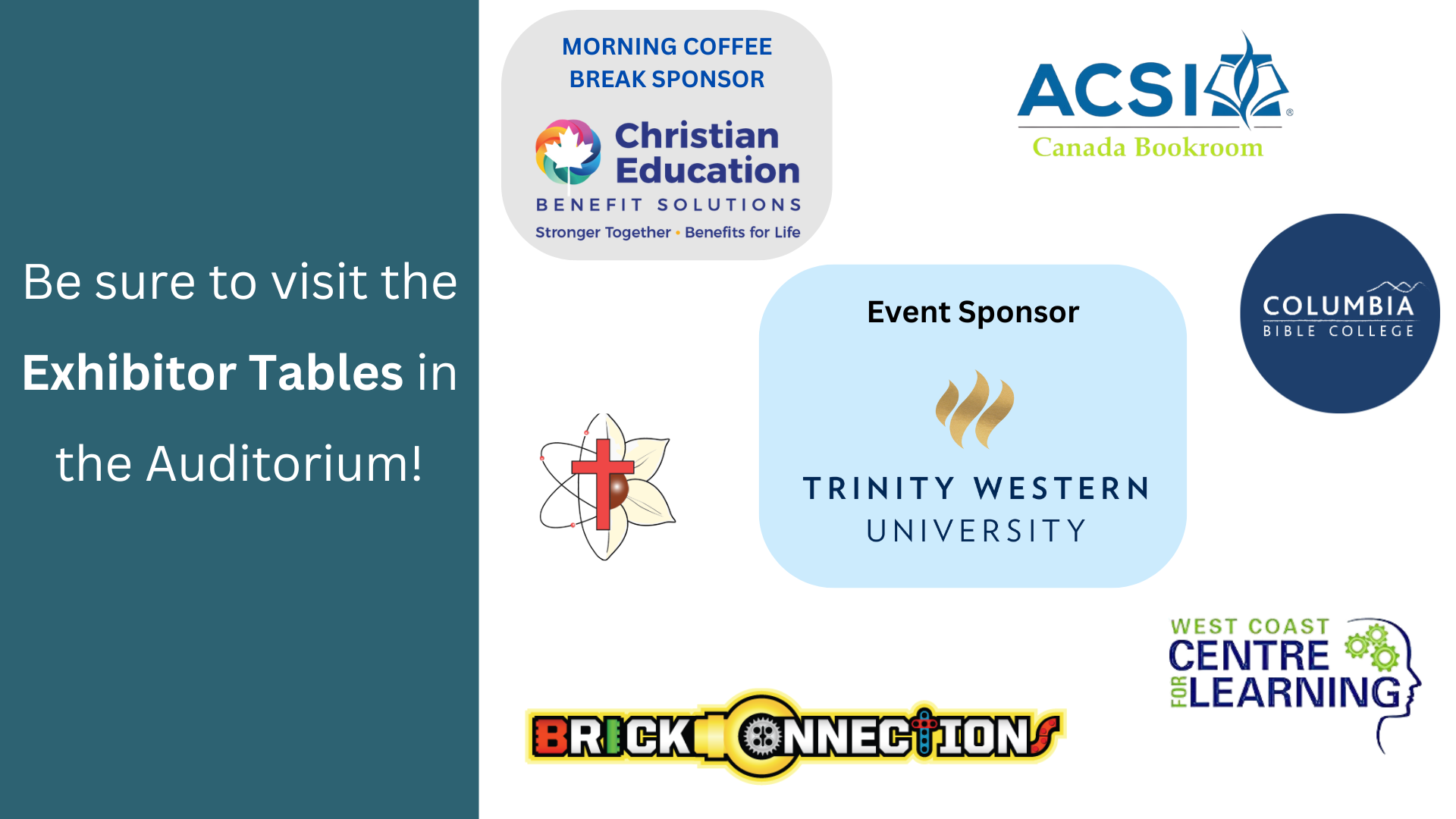“Instead, speaking the truth in love, we will grow to become in every respect the mature body of him who is the head, that is, Christ. From him the whole body, joined and held together by every supporting ligament, grows and builds itself up in love, as each part does its work.” Ephesians 4:15-16 NIV
KEYNOTE SPEAKER
Dr. Chris Mattatall is the University of Lethbridge Board of Governor’s Teaching Chair (2023-2025). He teaches undergraduate and graduate level courses in the Faculty of Education and conducts collaborative research in a number of schools in areas related to reading instruction, teacher efficacy and reading intervention. He also conducts research related to his Board of Governor’s Teaching Chair position which examines the characteristics of effective educators and how small adjustments to teaching practice can have significant impact in the classroom. Dr. Mattatall speaks nationally and internationally on topics related to the science of learning, how the brain learns and develops, motivation and engagement, and teaching and learning strategies that help to direct student attention, strengthen memory and build self-regulation
Chris and his wife, Gloria, have been married for 34 years, have three grown children and two adorable grand-daughters.. They also care for their lovable, playful and mischievous Bernadoodle named Winston.
-
The 4 Pillars of Learning
Cognitive neuroscience has shown us that all human beings share the same basic cognitive architecture; and without an understanding of how the brain learns, instruction is blind (Sweller, 2017). Indeed, holding an understanding how the human brain learns is the key to teaching well. In this session we examine the four must-know principles, or pillars, of how the human brain takes in, processes, remembers and consolidates information; and equally important, what teachers need to know in order to ready the brain to learn. Holding an understanding to these four pillars will undoubtedly have an impact on how teachers plan their lessons, utilize homework and assessment, and structure their daily class time.
-
Small Teaching Strategies to Enhance Memory, Attention and Engagement
In this session we explore practical and immediately applicable ways to address the 4 pillars of learning that we talked about in the first morning session. Through a selection of ‘small teachings’ (Lang, 2021) we examine ways to direct attention, enhance memory, prime students to learn in various ways, increase engagement and motivation, and ensure our classrooms address the needs of the developing student brain. This will take two sessions.
-
Small Teaching Strategies (Part 2)
In this session we look specifically at student distraction and how teachers can mitigate this problem. We also talk a bit in this session about the developing teenage brain and how understanding of what teenagers need will enhance your own teaching and relationships with them. Additionally, this session aims to provide links to useful resources that you’ll find helpful in your daily teaching.
Collaborative Groups
This year’s convention will include collaborative group discussions which are guided by an educational leader. These sessions are designed to bring educators together in meaningful conversation and learning.
Delegates will first connect with their peers in their respective divisions, and then, depending on group size and grade-level specifics, branch into smaller groups for deeper, more focused dialogue.
Each team will begin by connecting with their core group members. From there, depending on group size and grade-level specifics, participants will have the opportunity to branch into smaller, more focused discussions. This structure ensures that everyone benefits from meaningful interaction, whether in larger collaborative groups or in more specialized conversations tailored to their teaching context.
-
Reflect back on the 4 pillars of learning (Attention, Active Engagement, Error Feedback, Consolidation/Automaticity). Which of these areas is a strength that comes through in your teaching? What are 1-2 strategies or ideas you can share with colleagues?
According to cognitive science, error making is a critical component to learning; we all learn this way. How can you ensure that your students come to terms with this necessary expectation for learning? How do you create a safe classroom environment that allows for the emotional risks associated with making mistakes? and the impact this can have on student’s sense of ability, worth or learning?
In Small Teaching Part 1, did any approaches resonate with you or encouraged you to try something new this year?
-
Reflect back on the 4 pillars of learning (Attention, Active Engagement, Error Feedback, Consolidation/Automaticity). Which of these areas is a strength that comes through in your teaching? What are 1-2 strategies or ideas you can share with colleagues?
According to cognitive science, error making is a critical component to learning; we all learn this way. How can you ensure that your students come to terms with this necessary expectation for learning? How do you create a safe classroom environment that allows for the emotional risks associated with making mistakes? and the impact this can have on student’s sense of ability, worth or learning?
How are you currently using predicting, priming, connecting or retrieval practices in your teaching?
-
Reflect back on the 4 pillars of learning (Attention, Active Engagement, Error Feedback, Consolidation/Automaticity). Which of these areas is a strength that comes through in your teaching? What are 1-2 strategies or ideas you can share with colleagues?
According to cognitive science, error making is a critical component to learning; we all learn this way. How can you ensure that your students come to terms with this necessary expectation for learning? How do you create a safe classroom environment that allows for the emotional risks associated with making mistakes? and the impact this can have on student’s sense of ability, worth or learning?
How are you currently using predicting, priming, connecting or retrieval practices in your teaching?
-
Chris stated in the first session "what you know determines what you see", what are you seeing in your classroom right now that is on your mind?
What strategies have you found most helpful in helping students be actively engaged in their learning? What does this look like to you? Have there been any challenges you've consistently noticed in helping students become active participants in their learning?
When it comes to giving students feedback on their work and students’ self-assessment, how do you balance encouraging them to make necessary shifts while also helping them see their strengths?
According to cognitive science, error making is a critical component to learning; we all learn this way. How do you create a classroom environment where taking learning risks and making mistakes is not only safe but even encouraged? What barriers do you encounter in this process if any?
How do you help students achieve in-depth learning so that they're able to consolidate the information/skills they've developed and to have these skills come to them more automatically?
How are you currently using predicting, priming, connecting, or retrieval practices in your teaching? Are any of these skills more/less important to focus in an HS setting?
-
Chris stated in the first session that “What you know determines what you see”... in other words, your knowledge of children, curriculum, teaching methods etc help you perceive what you should do next and help you read your teaching situation better.
Reflect back on the 4 pillars of learning (Attention, Active Engagement, Error Feedback, Consolidation/Automaticity). Which of these areas is a strength that comes through in your teaching? What are 1-2 strategies or ideas you can share with colleagues?
What do you know about neurodiversity that can impact attention, active engagement, error feedback, automaticity?
-
Reflect back on the 4 pillars of learning. Which of these areas is a strength that comes through in your teaching? What are 1-2 strategies or ideas you can share with colleagues?
Attention,
Active Engagement
Error Feedback
Consolidation/Automaticity
According to cognitive science, error making is a critical component to learning - especially in Physical Education; we all learn this way. How can you ensure that your students come to terms with this necessary expectation for learning? How do you create a safe classroom environment that allows for the emotional risks associated with making mistakes? and the impact this can have on student’s sense of ability, worth or learning?
How are you currently using predicting, priming, connecting or retrieval practices in your teaching?
-
A. “What you know determines what you see.”
When your students are discussing matters pertaining to their faith in class, what are you “seeing” in their learning, faith development, or classroom dynamics?B. Active Engagement with Scripture
What strategies have you found most helpful in getting students actively engaged with the Bible? What does this look like in practice, and what challenges have you faced?C. Feedback and Spiritual Growth
How do we best give students feedback on Bible assignments, reflections, or discussions?D. Normalizing Mistakes in Faith Learning
Since error-making is critical to learning, how can we create a classroom environment where theological misunderstandings, doubts, or “wrong answers” are not only safe but also encouraged as part of faith exploration?E. Using Small Teaching Practices
How are you currently using predicting, priming, connecting, or retrieval practices in your Bible teaching?
-
A. “What you know determines what you see.”What are you seeing in your ADST classroom right now that is on your mind (e.g. trends in student behaviour, interests, teaching practices that work well, skills that are challenging for students, etc.)?
B. Active Engagement with Technical Skills. What strategies have you found most helpful in helping students be actively engaged in their learning especially in the context of teaching ADST? Have there been any challenges you've consistently noticed in helping students become active participants in their learning?
C. Feedback What does feedback look like in your classroom for students? When it comes to giving students feedback on their work and students’ self-assessment, how do you balance encouraging them to make necessary shifts while also helping them see their strengths? How do you navigate moments of subjectivity in the feedback given?
D. Normalizing Mistakes. How do you create a classroom environment where taking learning risks/making mistakes is not only safe but even encouraged especially knowing how personal the creative process can be for some students? Are there any barriers you’ve encountered in this process? Anything you’ve found that’s worked really well?
D. Building long-lasting skills. How do you help students achieve in-depth learning so that they're able to both consolidate the information/individual skills they've developed and to have these skills come to them more automatically?
-
Discussion questions will be available at the convention.
This session is for LOP (Letter of Permission) teachers, and even new teachers, who would like to have some support with their teaching practice. This mentorship/coaching workshop will have some structure but will also be a time of Q and A and general support on anything from classroom management to report writing to understanding the BC curriculum. If enough are interested, monthly group zoom meetings may be started.
-
Discussion questions will be available at the convention.
-
Discussion questions will be available at the convention.






